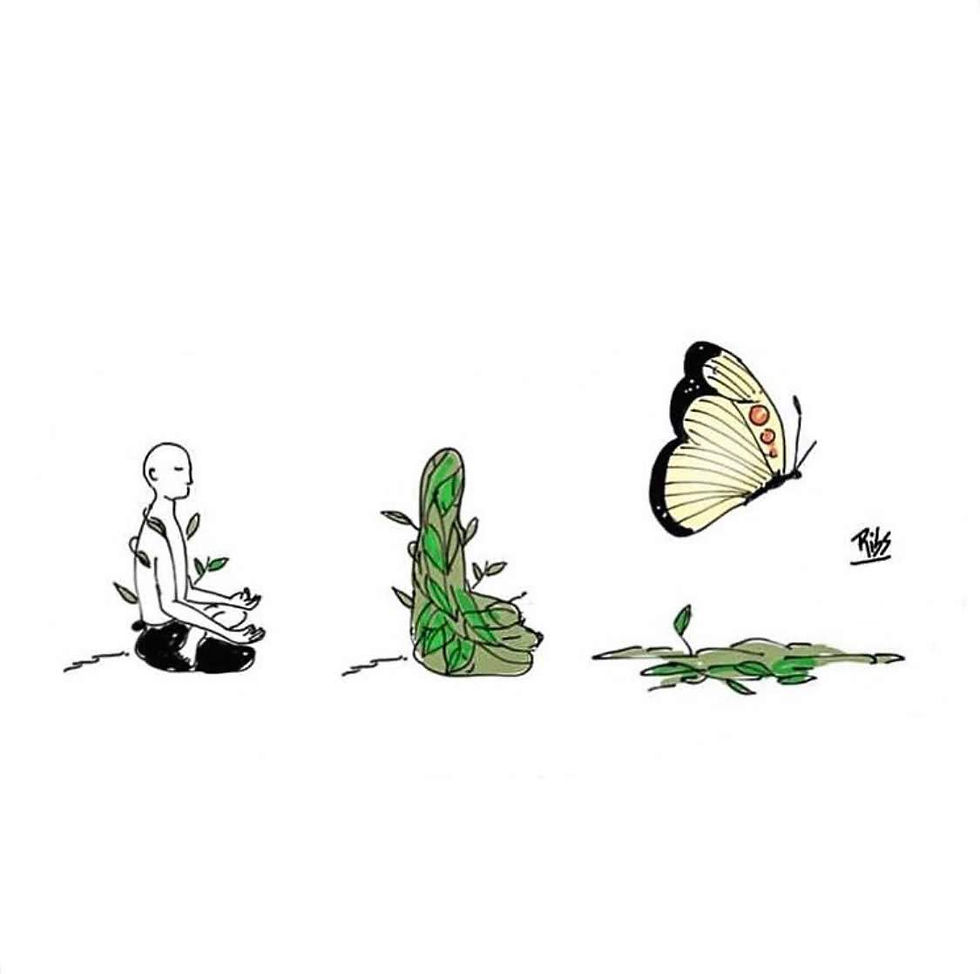Dating While Mentally Ill
- Cristina Panagi
- Mar 29, 2020
- 3 min read

Navigating the emotional ups and downs of a relationship can be difficult for anyone, but it can be especially difficult for someone already dealing with a mental illness or mental health issues. You might be afraid to be vulnerable with a new partner because of past trauma, or fear of judgement because of a mental illness. Having a mental illness does not make you
unworthy of love, but it does present its own unique challenges and it is important to communicate your emotional needs with a partner. You do not need to disclose your mental health history on a first date, but as a relationship becomes more serious and long term, discussing your issues in a manner that is safe and comfortable to you can bring trust and openness to a relationship. As with any relationship, regular relationship standards apply, and there should be a certain level of respect and communication that is upheld by both parties.
R - E - S - P - E - C - T
Respect for yourself and your partner is one of the most essential parts of any relationship. Before even getting into a relationship it is helpful to assess your own current mental state and life situation in order to gauge how the stress of a new relationship could impact your mental health. By doing this self-evaluation you are giving yourself the power to overcome past trauma and insecurities that could bring unhealthy habits into a new relationship. It is also important in doing this to make sure you have a healthy relationship with yourself, and that your self-esteem is strong enough that any issues that come with a new relationship will not affect the way you see yourself. Self-awareness and self-love are skills that will give you strength in what could be an uncertain or unstable situation.
VULNERABILITY
Disclosing your mental illness to your partner can be helpful as your relationship gets more serious and a certain level of trust is reached. When dealing with your own mental illness it can be helpful to include your partner in the conversation so that misunderstandings can be avoided. Mental illness carries a heavy stigma so it can be intimidating to have this conversation with your partner, but in order to have a healthy communication and openness in a relationship it is important to be vulnerable and make them aware of your emotional needs, and also of anything that could be holding you back from fulfilling their emotional needs. Vulnerability in a relationship can create a lot of trust, but there should be an even balance on both ends to avoid one person feeling like they are becoming the other’s therapist or feeling overwhelmed by a sudden release of emotions. By engaging in productive conversation, you can set healthy boundaries with your partner that will create a strong foundation for the relationship.
CODEPENDENCY vs DEPENDENCY
There is a fine line between emotional vulnerability and emotional labor, which can create codependency. Codependency is a cycle in a relationship where one partner becomes dependent on the other to fulfill their basic needs, and the other, seeking their approval, sacrifices other parts of their life in order to give their partner full attention. This creates an unhealthy power dynamic in the relationship, that can create unnecessary anxiety and resentment. Starting a conversation with your partner about mental health, whether or not they are also dealing with mental illness, is a good way to set boundaries and identify unhealthy behaviors that may be triggered by a new relationship. Dependency, rather than codependency, is when both partners feel supported in their individual goals and that their emotional needs are being met. In a dependent relationship both partners can grow within the relationship, while also feeling supported in pursuing their outside goals.
YOU ARE NOT YOUR LONELINESS
Being in a healthy relationship can be a great source of happiness and support, even as you deal with the struggles of a mental illness. While it is not your partner’s job to “fix” you, which is a problematic concept for many reasons, being emotionally supported by someone who understands you on a more personal level than a therapist or psychiatrist can make your journey a lot less lonely. Mental illness, in any capacity, can be an incredibly isolating experience, especially with the societal stigma around mental illness that is often blatantly displayed in mainstream media. You should never feel like being mentally ill disqualifies you from achieving a basic human desire. Happiness is available to everyone regardless of the unique challenges they may face.

Photo sources:
Image 2: https://www.instagram.com/o.ribs/


Comments